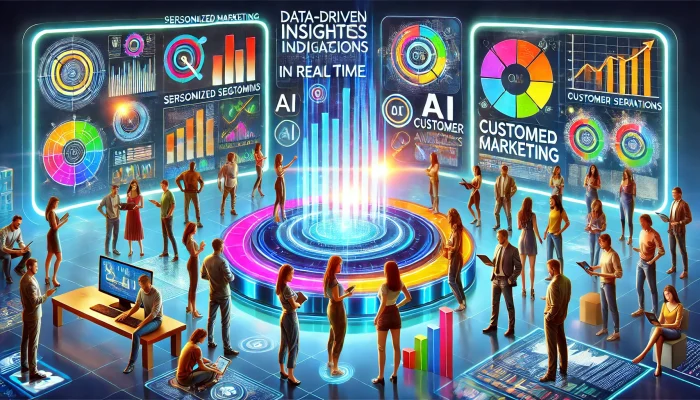In the age of digital dynamism, where the world scrolls past in the blink of an eye, businesses grapple with the ever-pressing challenge of meaningful engagement. The era of one-size-fits-all marketing is swiftly being relegated to the annals of history. Today, the spotlight shines bright on personalized marketing and customer segmentation. But what makes these strategies so crucial, and how are they reshaping the way businesses communicate? Let’s delve into the nuances.
The Personal Touch in Marketing
Personalized marketing is all about understanding that no two consumers are the same. It’s about recognizing individual preferences, histories, behaviors, and aspirations. From personalized email campaigns that address the recipient by their first name to product recommendations based on browsing history, this strategy seeks to make each customer feel valued and understood. When a business communicates in a way that feels tailor-made for an individual, the response is often increased engagement, loyalty, and conversions.
Segmenting to Understand and Target
While personalization tailors communication, customer segmentation provides the foundation upon which this tailored communication is built. At its core, segmentation is the practice of dividing a company’s target market into approachable groups. These segments can be based on demographics, psychographics, buying habits, interests, or any combination thereof.
For instance, a cosmetic brand might segment its market based on age, skin type, or even concerns like acne or wrinkles. By doing so, the brand can create specific products and campaigns that address the unique needs of each segment, ensuring relevancy and appeal.
Interlinking Personalization and Segmentation
On the surface, personalized marketing and customer segmentation might seem like two distinct strategies. But, in practice, they’re deeply interconnected:
- Foundational Insights: Segmentation provides the foundational data and insights that drive personalized campaigns. By understanding distinct customer groups, businesses can create personalized content that resonates.
- Improved Efficiency: While personalization ensures content relevance, segmentation guarantees that this content reaches the right audience. This dual approach ensures maximum impact with minimal wasted effort.
- Feedback Loop: As businesses deploy personalized campaigns, they gather more data about customer preferences and behaviors. This data, in turn, can refine segmentation strategies, creating a continuous loop of improvement.
The Future is Personal
The rise of technologies like artificial intelligence and machine learning means that both personalization and segmentation will only get more refined. As businesses access deeper insights about their customers, they will craft experiences that are more immersive, intuitive, and individualized.
Conclusion
In the vast sea of digital content, businesses that wish to stand out must prioritize the individual. The combined might of personalized marketing and customer segmentation is not just the future; it’s the present. Embracing these strategies not only boosts metrics like engagement and conversion but also fosters a deeper, more meaningful connection with customers, paving the way for long-term success.
